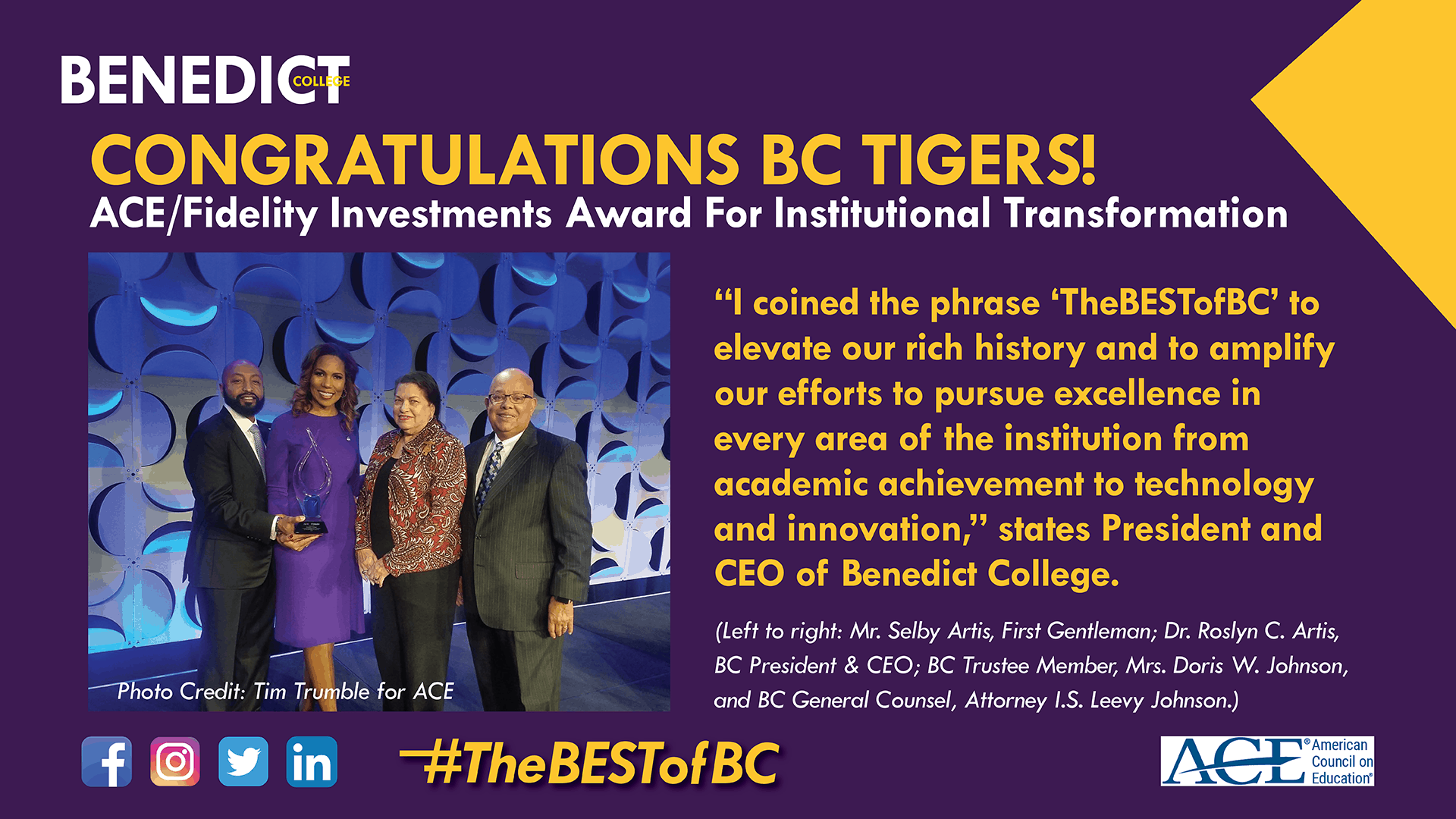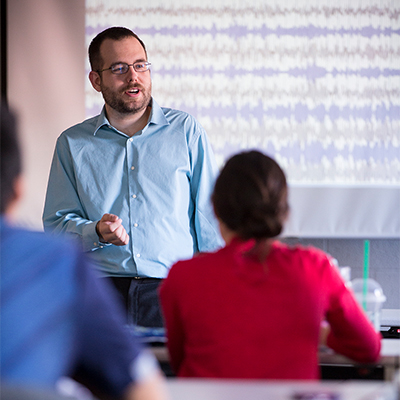 COLUMBIA, SC (courtesy benedict.edu) — The American Council on Education (ACE) announced Mar. 11 that Benedict College is a recipient of the ACE/Fidelity Investments Awards for Institutional Transformation. Presented at ACE2019, ACE’s 101st Annual Meeting, the award was accepted by President Roslyn Clark Artis on behalf of Benedict College. The University of South Florida (USF) is the only other recipient of this award.
COLUMBIA, SC (courtesy benedict.edu) — The American Council on Education (ACE) announced Mar. 11 that Benedict College is a recipient of the ACE/Fidelity Investments Awards for Institutional Transformation. Presented at ACE2019, ACE’s 101st Annual Meeting, the award was accepted by President Roslyn Clark Artis on behalf of Benedict College. The University of South Florida (USF) is the only other recipient of this award.
The award was created to recognize institutions that have responded to higher education challenges in innovative and creative ways and achieved dramatic changes in a relatively brief period. It includes a $10,000 prize.
“Through strategic thinking and measured efforts, University of South Florida and Benedict College have both transformed their campuses to better prioritize student success, scholarly achievement, and innovation,” said ACE President Ted Mitchell. “Thank you to Fidelity Investments for its generous support, which allows us each year to recognize colleges and universities that are meeting challenges head-on.”
“Together with ACE, Fidelity is honored to celebrate higher education institutions helping students succeed on campus and in life,” said Patrick Vaughan, senior vice president, managing director, and higher education practice leader, Fidelity Investments. “These schools have proven that a clear vision of serving students can put an institution on a path to sustained success.”
ACE invited nominations and applications for the award from any U.S. college or university eligible for ACE membership, divided into two categories: the first for institutions with student populations of over 5,000 (USF), and the second for institutions with student populations of up to 5,000 (Benedict).
Founded in 1870 by Bathsheba Benedict, Benedict College is a private, designated historically black college and university serving 2,100 students in Columbia, South Carolina. Years of downward trends in enrollment, poor retention, and a modest endowment created significant financial instability, which was further exacerbated by an aging infrastructure; increased competition in student recruitment; a traditional tuition-only business model that left little room for innovation; and academic and degree programs that were not aligned with industry expectations.
Upon President Artis’ appointment in June 2017, Benedict started assessing these issues while formulating a five-year strategic plan for sustainability and growth. Beginning by gathering insight from key stakeholders, Benedict then eliminated long-standing open enrollment, strengthened career development opportunities, lowered tuition, revised the curriculum to align with the industry and focus on innovation, created a strategic and dedicated enrollment management division, increased first-year student support, and reduced debt.
“When I joined Benedict in the fall of 2017, I coined ‘The BEST of BC’ to acknowledge the college’s rich legacy, and to point toward creating a community of excellence, scholarly achievement, and talent development that embraces technology and innovation,” said Artis.
By the summer of 2018, applications increased by 20 percent and admissions by 14 percent. Benedict welcomed over 750 new students in fall 2018–the largest class in five years. It also transformed into a fiscally stable institution, despite lowering tuition.

 Anderson University professors recognized for making college more affordable
Anderson University professors recognized for making college more affordable